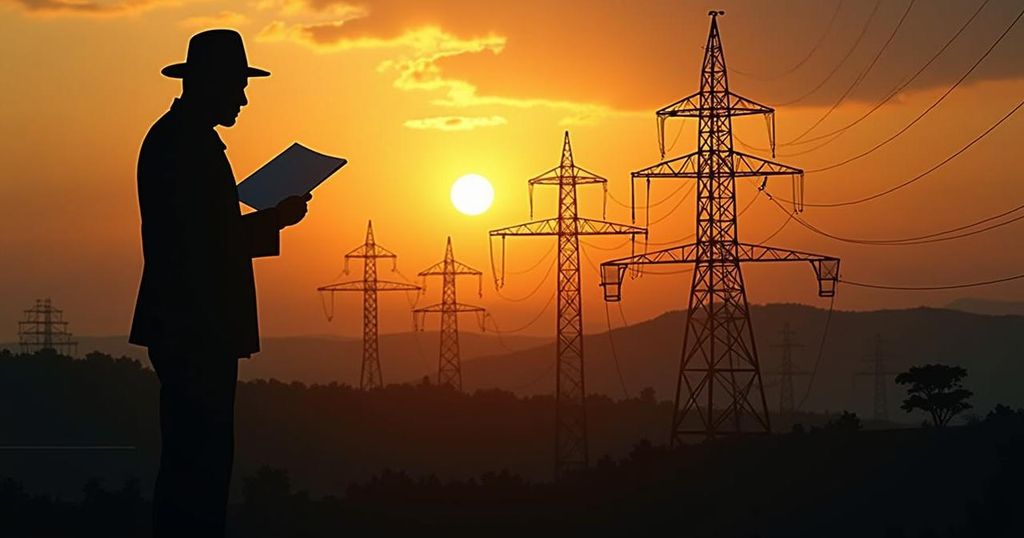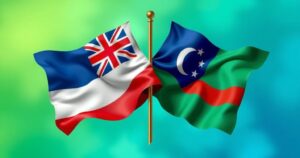Bolivia Intervenes in ICJ Case Addressing Allegations of Genocide Against Israel

Bolivia has filed a Declaration of Intervention at the ICJ in the South Africa v. Israel case, focusing on the interpretation of the Genocide Convention amid allegations that Israel’s actions in Gaza constitute genocide. Bolivia aims to influence the court’s decisions regarding key articles of the convention, amidst growing international involvement from several countries concerned about Israel’s military actions and humanitarian impact in Gaza.
Bolivia has officially submitted a Declaration of Intervention to the International Court of Justice (ICJ) regarding the ongoing case of South Africa v. Israel, which addresses the application of the Convention on the Prevention and Punishment of the Crime of Genocide in the Gaza Strip. This submission was made on Wednesday, further initiating Bolivia’s involvement based on its assertion related to the interpretation of several pivotal articles of the Genocide Convention. Bolivia references Article 63 of the ICJ Statute, which permits states to intervene in cases that question the interpretation of a multilateral convention. The nation highlights that key provisions within the Genocide Convention, specifically Articles I, II, III, IV, V, VI, and IX, are at the heart of the legal dispute. Through its intervention, Bolivia aims to present its own understanding of these articles, which may affect the outcome of the court’s deliberations. The case was originally brought forth by South Africa on December 29, 2023, contending that Israel’s actions against the Palestinian people in the Gaza Strip constitute genocide. South Africa claims that Israel has engaged in acts of genocide, causing considerable harm and creating situations that endanger Palestinian lives. The case also underscores Israel’s obligation to prevent and punish genocide and addresses its continued breaches of the Genocide Convention. Bolivia joins several other nations, including Colombia, Mexico, and Nicaragua, in either seeking to intervene under Article 62 or submitting declarations under Article 63 of the ICJ Statute. Palestine has also engaged in the proceedings by invoking both Articles 62 and 63. In its Declaration of Intervention, Bolivia highlights the devastating humanitarian crisis currently affecting Gaza, expressing concern over Israel’s alleged disregard for prior ICJ orders intended to protect Palestinian civilians. Despite repeated ICJ directives, Bolivia asserts that Israel’s military activities have led to catastrophic casualties, with reports indicating over 36,000 Palestinian fatalities since October 2023. The ICJ has invited both South Africa and Israel to provide their written responses regarding Bolivia’s intervention, as per Article 83 of the Rules of Court.
The current case emerged from allegations by South Africa that Israel’s military actions in the Gaza Strip amount to genocide against Palestinians. The legal framework in question is the Convention on the Prevention and Punishment of the Crime of Genocide, which defines actions that constitute genocide and outlines the responsibilities of states to prevent and punish such actions. Bolivia’s involvement signifies the broader geopolitical implications and the increasing international scrutiny of Israel’s policies in regard to the Palestinian territories. The ICJ serves as a principal judicial organ for countries to seek resolutions on serious international legal matters, such as genocidal actions.
Bolivia’s intervention in the ICJ proceedings signals a significant move in the international legal landscape concerning accusations of genocide against Israel. By asserting its interpretations of the Genocide Convention, Bolivia aims to impact the court’s judicial outcome in a manner that stresses both humanitarian concerns and legal compliance. The proceedings draw greater attention to the ongoing humanitarian crisis in Gaza as well as the responsibilities of states under international law to prevent and address acts of genocide.
Original Source: www.jurist.org








